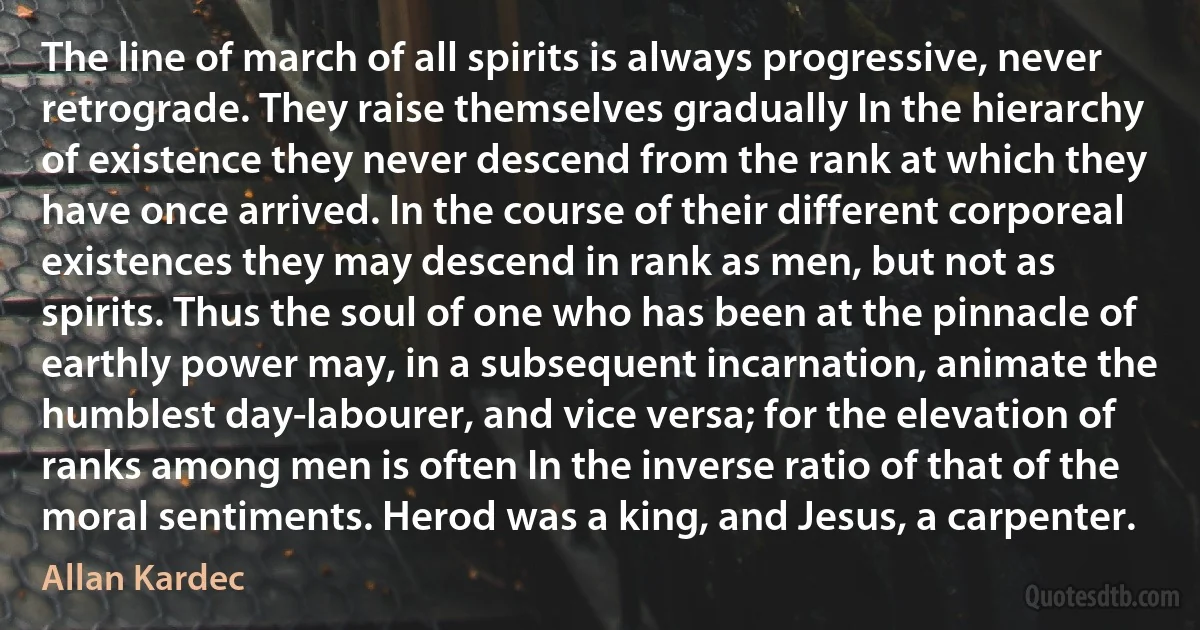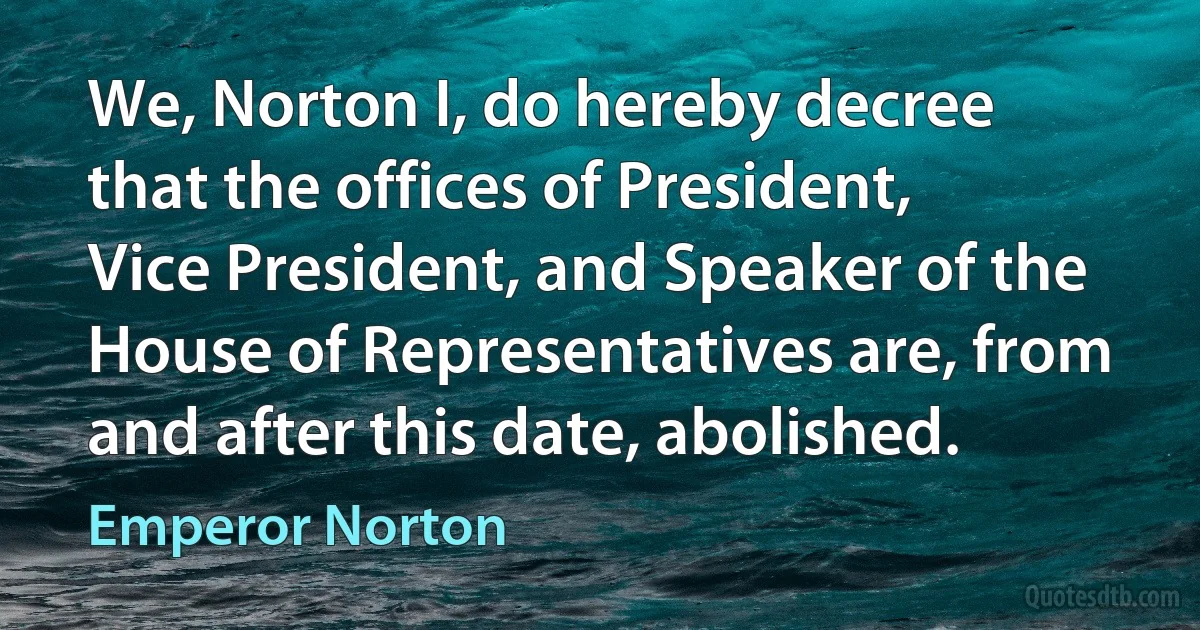Vice Quotes - page 13
Faith is a vice pretending to be a virtue, its lies and errors and frothy nonsense deluding us and distracting us from action. There's no salvation in wishful thinking, only inertia. Faith is the enemy of reason. The one thing every single one of us here must be united in despising is faith. It's the barren refuge of the vacuous, the fearful, the frauds, and the obstacles to accomplishment.

PZ Myers
Catilina in particular was one of the most nefarious men in that nefarious age. His villanies belong to the criminal records, not to history; but his very outward appearance - the pale countenance, the wild glance, the gait by turns sluggish and hurried - betrayed his dismal past. He possessed in a high degree the qualities which are required in the leader of such a band - the faculty of enjoying all pleasures and of bearing all privations, courage, military talent, knowledge of men, the energy of a felon, and that horrible mastery of vice which knows how to bring the weak to fall, and how to train the fallen to crime.

Theodor Mommsen
As a black woman interested in feminist movement, I am often asked whether being black is more important than being a woman; whether feminist struggle to end sexist oppression is more important than the struggle to racism or vice versa. All such questions are rooted in competitive either/or thinking, the belief that the self is formed in opposition to an other. ... Most people are socialized to think in terms of opposition rather than compatibility. Rather than seeing anti-racist work as totally compatible with working to end sexist oppression, they often see them as two movements competing for first place.

Bell hooks
For all the ‘4th Generation of War' intellectuals running around today saying that the nature of war has fundamentally changed, the tactics are wholly new, etc., I must respectfully say, ‘Not really': Alexander the Great would not be in the least bit perplexed by the enemy that we face right now in Iraq, and our leaders going into this fight do their troops a disservice by not studying - studying, vice just reading - the men who have gone before us. We have been fighting on this planet for 5,000 years and we should take advantage of their experience. ‘Winging it' and filling body bags as we sort out what works reminds us of the moral dictates and the cost of incompetence in our profession.

James Mattis
Let that ancient dragon, Cadalus, take note. Let this disturber of the Church, this destroyer of apostolic discipline, this enemy of man's salvation understand. Let him beware, I say, this root of all sin, this herald of the devil, this apostle of Antichrist. And what else shall I call him? He is the arrow drawn from the quiver of Satan, the rod of the Assyrian, the son Belial, "the son of perdition, who rises in his pride against every god, so called, ever object of men's worship" (2 Thess. 2:3-4), the whirlpool of lust, the shipwreck of chastity, the disgrace of Christianity, the ignominy of bishops, the progeny of vipers, the stench or the world, the filth of the ages, the shame of the universe. Still more epithets for Cadalus can be added, a list of darksome names: slippery snake, a twisting serpent, the dung of humanity, the latrine of crime, the dregs of vice, the abomination of heaven the expulsion from paradise, the fodder of hell, the stubble of eternal fire.

Peter Damian
Let us say that the freedom exists, but it is limited to the one unique act of choosing the profession. Afterward all freedom is over. When he begins his studies at the university, the doctor, lawyer, or engineer is forced into an extremely rigid curriculum which ends with a series of examinations. If he passes them, he receives his license and can thereafter pursue his profession in seeming freedom. But in doing so he becomes the slave of base powers; he is dependent on success, on money, on his ambition, his hunger for fame, on whether or not people like him. He must submit to elections, must earn money, must take part in the ruthless competition of castes, families, political parties, newspapers. In return he has the freedom to become successful and well-to-do, and to be hated by the unsuccessful, or vice versa.

Hermann Hesse
The assumption that, beneath economics, reality is psychosexual is often rejected as ahistorical by those who accept a dialectical materialist view of history because it seems to land us back where Marx began: groping through a fog of utopian hypotheses, philosophical systems that might be right, that might be wrong (there is no way to tell); systems that explain concrete historical developments by a priori categories of thought; historical materialism, however, attempted to explain 'knowing' by 'being' and not vice versa.

Shulamith Firestone
It is not, perhaps, unreasonable to conclude, that a pure and perfect democracy is a thing not attainable by man, constituted as he is of contending elements of vice and virtue, and ever mainly influenced by the predominant principle of self-interest. It may, indeed, be confidently asserted, that there never was that government called a republic, which was not ultimately ruled by a single will, and, therefore, (however bold may seem the paradox,) virtually and substantially a monarchy.

Alexander Fraser Tytler
We will be asked how, on our theory, justice can be a virtue and injustice a vice, since it will surely be difficult to show that any man whatsoever must need to be just as he needs the use of his hands and eyes, or needs prudence, courage and temperance? Before answering this question I shall argue that if it cannot be answered then justice can no longer be recommended as a virtue.

Philippa Foot
Philosophers who have supposed that actual action was required if 'good' were to be used in a sincere evaluation have got into difficulties over weakness of will, and they should surely agree that enough has been done if we can show that any man has reason to aim at virtue and avoid vice. But is this impossibly difficult if we consider the kinds of things that count as virtue and vice? Consider, for instance, the cardinal virtues, prudence, temperance, courage and justice. Obviously any man needs prudence, but does he not also need to resist the temptation of pleasure when there is harm involved? And how could it be argued that he would never need to face what was fearful for the sake of some good? It is not obvious what someone would mean if he said that temperance or courage were not good qualities, and this not because of the 'praising' sense of these words, but because of the things that courage and temperance are.

Philippa Foot
Worst damnfool mistake I ever made was letting myself be elected Vice President of the United States. Should have stuck with my old chores as Speaker of the House. I gave up the second most important job in the Government for one that didn't amount to a hill of beans. I spent eight long years as Mr. Roosevelt's spare tire. I might still be Speaker if I didn't let them elect me Vice-President.

John Nance Garner



